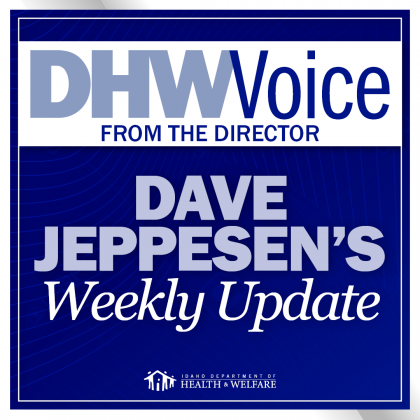Can you imagine a place that offers services to stabilize people in a behavioral health crisis as well as treatment for those with serious and complex mental illnesses and substance use disorders? A place that serves everyone -- regardless of age, where they live, or their ability to pay?
I can. And I’m grateful that Idaho Gov. Brad Little and the members of the Idaho Legislature also could. Gov. Little recommended and the Idaho Legislature has appropriated $12 million over two years for Certified Community Behavioral Health Clinics (CCBHCs) to improve access and the quality of behavioral health services in Idaho. We’re grateful for the state’s support.
CCBHCs create access to an array of services, stabilize people in crisis, and provide necessary treatment for those with complex mental illnesses and substance use disorders. They also ensure an approach to healthcare that emphasizes recovery, wellness, trauma-informed care, and the integration of physical and behavioral health.
The goals of the CCBHCs are to increase access to community-based mental health and substance use disorder services (especially in communities and areas that need more access), support the integration of behavioral health with physical health care, and increase use of evidence-based practices.
In a nutshell, they are health clinics that provide whole-person care under one roof. If some of the needed services are not directly provided by the health clinic, they have formal relationships in place that easily link a patient to the needed service.
Idaho has four clinics that became Substance Abuse and Mental Health Services Administration (SAMSHA) /federal grant recipients in the fall of 2022. They are Heritage Health (based in the Coeur d’Alene area), Community Health Association of Spokane (expanding into the Lewiston area), Terry Reilly Health Services (clinic will be located in Caldwell), and Family Health Services (based in Twin Falls).
The grants are for four years and up to $1 million each year for each recipient. Based on the recommendation of the Idaho Behavioral Health Council, Idaho will initially use state funding to provide additional support for these four new clinics, with plans to add more clinics next year.
CCBHCs must provide nine core services, either directly or through formal partnerships.
These nine services must be provided by the clinic, or through formal relationships the clinics build with providers of those other services, so clients can access those services and doesn’t fall through the cracks.
Clinics have to develop plans on how those nine services will be provided.
The CCBHC model was developed by SAMHSA and the Centers for Medicare and Medicaid Services (CMS). It was tested during a federal demonstration project that started in 2017. It began in eight states with 66 clinics. CCBHCs are currently in 42 states and territories, with 430 clinics total. The U.S. Congress has invested $1.97 billion to date on CCBHCs.
I hope you have a safe and healthy weekend.
The Idaho Department of Health and Welfare is dedicated to strengthening the health, safety, and independence of Idahoans. Learn more at healthandwelfare.idaho.gov.

Join the Discussion
Please note the following terms of participation in commenting on the DHW Voice blog.
To ensure a productive discussion you agree to post only comments directly related to this post and to refrain from posting obscenities; threatening, abusive or discriminatory language; sexually explicit material; and other material that would violate the law if published here; promotional content; or private information such as phone numbers or addresses. DHW reserves the right to screen and remove inappropriate comments.